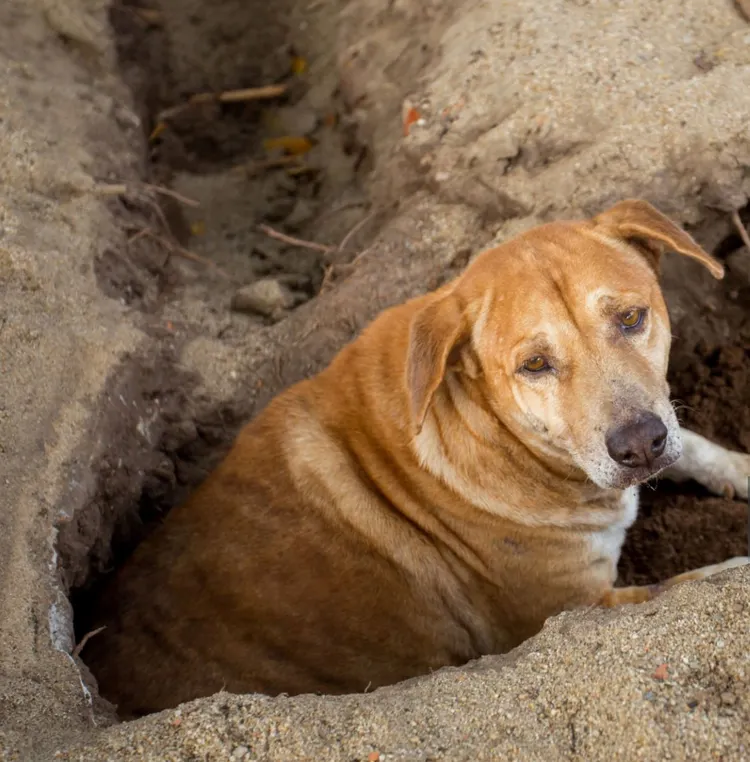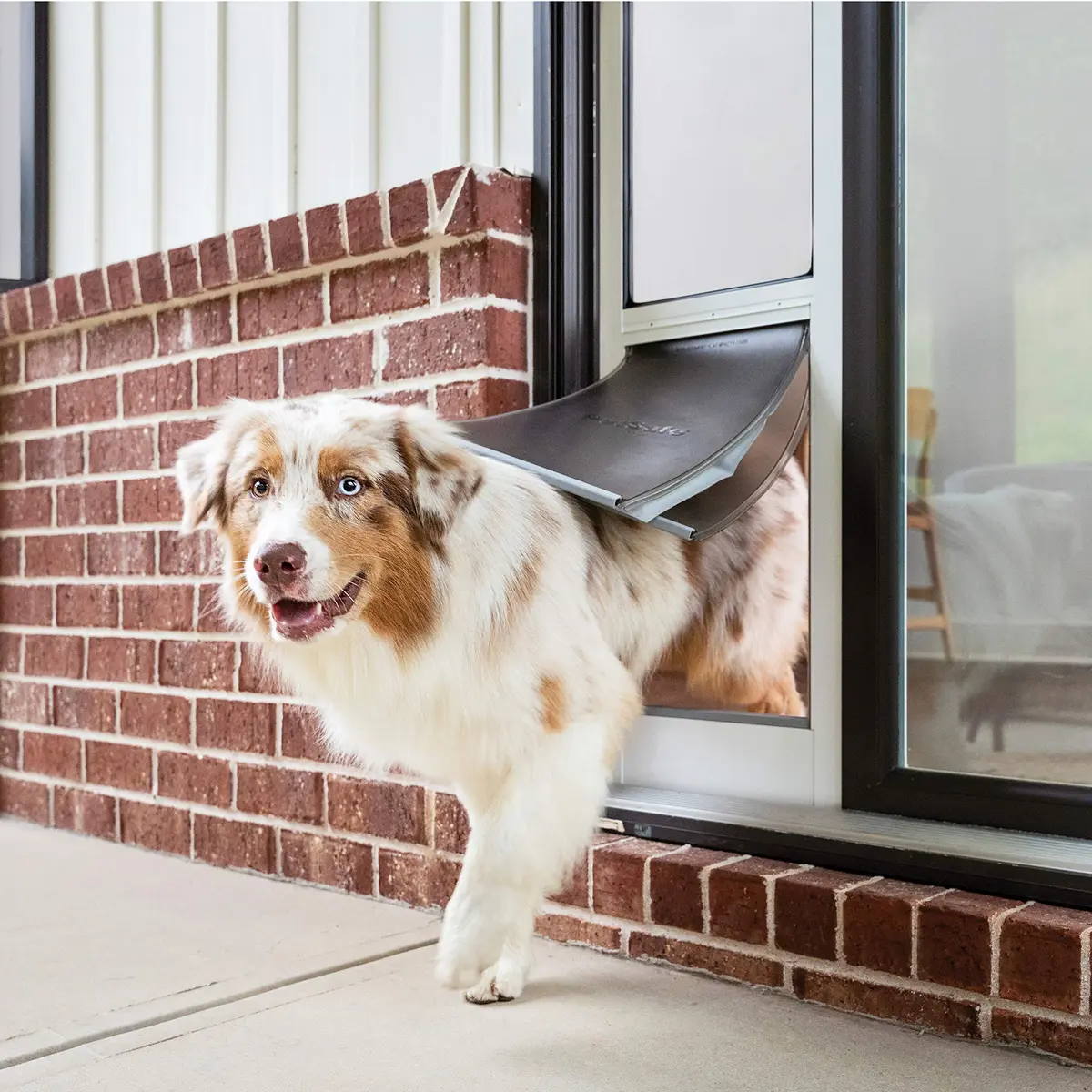ver noticed your dog furiously digging on your bed or couch, as if they’re looking for buried treasure? One minute, the bed’s perfectly made, and the next, it’s a dog’s personal excavation site. While it might leave you wondering why your dog seems so intent on rearranging the furniture, there’s a logical explanation behind this quirky behavior. Let’s dig into it—pun intended—and explore why dogs are so fond of this curious habit.
Why Do Dogs Dig? A Throwback to Their Wild Instincts
Dogs have been domesticated for thousands of years, but that doesn’t mean they’ve completely lost their wild instincts. Here are some of the most common reasons dogs dig on soft surfaces:
1. Nesting Instincts
The most likely reason your dog is digging into your bed or couch is their deeply ingrained nesting instinct. Before dogs were domesticated, their wild ancestors would dig to create a safe and comfortable place to rest. By pawing at the ground (or your couch), they would clear out debris, create a shallow hole to sleep in, and ensure the area was safe from potential predators.
Even though your dog lives in the comfort of your home, these instincts haven’t gone away. Digging into soft surfaces is their way of making the space more comfortable or “preparing” their resting spot.
2. Temperature Regulation
In the wild, dogs would dig to create a cool resting spot on hot days or to hunker down and keep warm in cold weather. While your house is likely climate-controlled, your dog may still dig to adjust their temperature. A blanket or cushion that’s been fluffed or repositioned might just feel cozier to them!
3. Marking Their Territory
Dogs have scent glands in their paws, and digging can be a way to mark their territory. When your dog digs, they’re leaving their scent behind, essentially claiming the bed or couch as their own. This behavior is more common in dogs that feel anxious or in multi-pet households where they may feel the need to “claim” their space.
4. Boredom or Anxiety
Sometimes, digging is just your dog’s way of dealing with boredom or anxiety. If your dog isn’t getting enough mental stimulation or physical exercise, they might start engaging in repetitive behaviors like digging. Anxiety, particularly separation anxiety, can also trigger this behavior as dogs try to self-soothe.
5. Seeking Comfort
Dogs love comfort—just like us! Digging may simply be their way of arranging blankets, cushions, or sheets to create a more comfortable spot to rest. Think of it as your dog fluffing their own pillows before settling down for a nap.

How to Manage Digging Behavior
While your dog’s digging might be harmless and simply part of their quirky charm, it can get frustrating when your bedding or couch gets wrecked in the process. Luckily, there are a few ways to manage or redirect this behavior:
1. Provide a Cozy, Designated Spot
If your dog is digging to create a cozy space, give them an area of their own. A plush dog bed or blanket on the floor can satisfy their need to dig without ruining your bed or couch. Make the spot as inviting as possible with soft blankets, and you might find them choosing their own space over yours.
2. Offer More Exercise and Mental Stimulation
If your dog is digging out of boredom or anxiety, increasing their daily exercise can help. Dogs with pent-up energy often resort to destructive behaviors, so a good walk, play session, or puzzle toy can keep their mind occupied. Mental stimulation through games and training is equally important.
3. Cool or Warm the Space
If temperature regulation is a factor, make sure your dog has a spot that’s comfortable in terms of temperature. Cooling mats or heated dog beds can help regulate their body temperature, reducing the need to dig in search of comfort.
4. Use a Digging Mat or Blanket
To satisfy their digging urges, consider providing a specific blanket or mat designed for digging. These interactive mats are designed for dogs to paw and dig at without causing any damage. It’s a fun and harmless outlet for their instincts!
5. Create a Calming Environment
If anxiety is at the root of your dog’s digging, focus on reducing stress in their environment. Calming pheromone sprays or diffusers, soothing music, or a consistent routine can help ease their anxiety.

Eco-Friendly Solutions for Your Dog’s Digging Habit
When trying to curb your dog’s digging behavior, you can take an eco-friendly approach. Here are a few tips:
- Choose Sustainable Dog Beds: Look for dog beds made from eco-friendly materials like organic cotton or recycled plastics. Not only will they provide comfort, but they’re also better for the environment.
- DIY Dog Blankets: If your dog loves to dig and burrow in blankets, consider repurposing old towels or sheets instead of buying new ones. This reduces waste and gives those old items new life.
- Use Natural Calming Solutions: If anxiety is causing your dog to dig, opt for natural solutions like lavender oil or chamomile-based calming sprays rather than synthetic products.
When to Worry: Is Digging a Sign of a Bigger Issue?
Most of the time, digging is harmless and just part of your dog’s quirky personality. However, if the digging becomes excessive or is paired with other signs of anxiety or distress, it’s worth consulting a veterinarian or a dog behaviorist. Pay attention to any changes in your dog’s behavior that seem out of the ordinary.
Final Thoughts: Embrace the Quirks!
At the end of the day, digging is a natural behavior for dogs. While it might be a little frustrating when your perfectly made bed becomes a crumpled mess, try to see it from your dog’s perspective. Whether they’re fluffing up their “nest” or marking their territory, digging is their way of making themselves comfortable and secure. With a little patience and some eco-friendly solutions, you can manage the behavior without losing your favorite blankets in the process!



